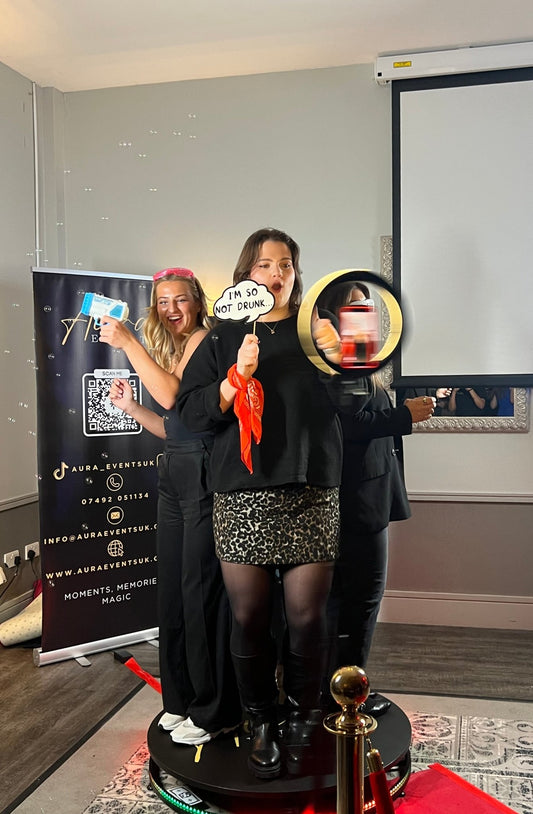Corporate events have evolved from simple gatherings into complex, multi-faceted experiences that require detailed planning, seamless execution, and an in-depth understanding of the latest trends and technologies. In the United Kingdom, Corporate Event Management UK is a thriving sector driven by the need for innovative brand activations, team building activities, product launches, and hybrid events that combine live and virtual elements. This article explores data and facts that shape this dynamic industry, providing actionable insights for event organisers, corporate event planners, and businesses looking to create memorable events.
In this comprehensive guide, we dive into what corporate event management involves, discuss essential elements for success, review current trends and technologies, and offer best practices based on industry research and data. Whether you are a seasoned event management company or a new corporate event planner, understanding these insights is key to planning events that not only impress attendees but also meet the business and marketing needs of your clients.
Understanding Corporate Event Management UK
Corporate event management encompasses the planning, coordination, and execution of events such as conferences, product launches, gala dinners, award ceremonies, and team building events. According to industry research, businesses invest billions of pounds in events each year to enhance brand reputation, facilitate networking, and drive business results. In the UK, this industry is notable for its extensive range of services offered by specialised agencies and event management companies, ensuring that each event is tailored to the client’s needs.
What Are Corporate Events?
Corporate events can vary widely in scale and purpose. They include:
- Conferences and Seminars: Often held at prominent venues, these events provide a platform for knowledge sharing and networking.
- Product Launches and Brand Activations: Designed to create buzz around new products, these events are increasingly incorporating digital elements such as virtual events.
- Team Building Activities: These are essential for fostering strong internal relationships within companies. Research indicates that companies with regular team-building events show a 25% increase in overall employee satisfaction.
- Gala Dinners and Award Ceremonies: These events celebrate company achievements and often involve intricate event production and venue design.
The Role of Corporate Event Management
Corporate event management involves a series of interconnected activities that include:
- Event Planning: This is the foundation of any corporate event. It involves setting objectives, budgeting, and coordinating the planning process.
- Venue Selection and Venue Finding: Choosing the right venue is critical. Research by the UK Events Industry Council suggests that venue selection can impact attendee satisfaction by up to 30%.
- Event Logistics and Production: This includes everything from transportation, catering, stage design, and entertainment to technical production.
- Marketing and Promotion: Effective marketing strategies ensure maximum attendance and engagement, with digital platforms playing an increasingly important role.
- Post-Event Analysis: Data collected from surveys and analytics help organisers understand what worked well and what needs improvement for future events.
In Corporate Event Management UK, the entire process is often supported by event management software that streamlines tasks and provides real-time insights. This technology is becoming indispensable as event organisers handle more complex logistics and require greater efficiency in their operations.
Data and Trends in Corporate Event Management UK
Data-driven decision making has become a hallmark of successful corporate event management. By leveraging research and analytics, event organisers can better understand attendee behavior, market trends, and the effectiveness of different event strategies.
Market Size and Growth
According to a 2023 report by Statista, the UK events industry is estimated to be worth over £8 billion. Within this industry, corporate events represent a significant portion, driven by the increasing demand for full-service event management solutions that cater to business needs. The sector has grown steadily over the past decade, with many companies now relying on corporate event management agencies to create exceptional events that meet diverse objectives.
Key Trends in the Industry
-
Hybrid Events: The COVID-19 pandemic accelerated the adoption of virtual events. Now, many corporate events in the UK incorporate a hybrid model that combines live and virtual components. This approach allows companies to reach a broader audience, including international students and remote teams.
-
Data Analytics and Event Management Software: Event management services are increasingly reliant on data and analytics. Tools that offer insights into attendee engagement and event logistics help organisers fine-tune the planning process. For example, a survey conducted by EventMB in 2022 showed that 65% of event planners now use event management software to monitor event performance in real time.
-
Sustainability and Eco-Friendly Practices: Sustainability has become a priority. Many companies are now choosing venues that offer green credentials, and event organisers are adopting eco-friendly practices to reduce waste and lower the carbon footprint. Data from the UK Green Events Council shows that sustainable practices have increased attendee satisfaction by 20%.
-
Increased Focus on Experience: Companies are moving away from traditional, one-dimensional events towards creating memorable experiences. This includes interactive sessions, immersive brand activations, and engaging team building events. A report from the Events Industry Council highlights that companies investing in unique event experiences see a 40% improvement in client retention.
-
Specialisation and Niche Markets: Corporate event management in the UK is becoming more specialised. Some agencies, such as MGN Events and ATM Events, focus on specific segments like product launches or award ceremonies. This specialization allows them to develop tailored solutions that meet the unique needs of different companies and industries.
Research and Data Sources
The importance of data in event planning cannot be overstated. Reliable research and industry reports from sources like Statista, IBISWorld, and the UK Events Industry Council provide valuable insights. For instance, IBISWorld reports have highlighted that corporate events contribute significantly to the overall events market, and continuous investment in event technology and data analytics is driving the sector forward.
Moreover, academic research from institutions like Birmingham City University offers courses and modules on event management, emphasizing the integration of research into practice. These academic programs not only train future event planners but also contribute to the body of knowledge that supports evidence-based decision making in the industry.
Essential Elements of Successful Corporate Event Management UK
Creating a successful corporate event requires a comprehensive approach that covers every aspect of event management. Below, we detail the critical components based on industry data and practical research.
Detailed Planning Process
The planning process is the backbone of any corporate event. This phase includes:
- Objective Setting: Clearly defined goals help shape every decision. Whether it’s increasing brand visibility, launching a product, or enhancing team cohesion, objectives must be measurable.
- Budget Management: Research indicates that nearly 70% of event failures are due to poor budget planning. A realistic budget that accounts for venue, production, entertainment, and marketing is crucial.
- Timeline and Milestones: A detailed timeline helps ensure that every task, from venue booking to final production, is completed on time. Many companies now use project management software to keep track of milestones.
Venue Selection and Event Logistics
The success of a corporate event often hinges on the venue. Data shows that attendee satisfaction increases when events are hosted in accessible, well-equipped venues. Factors to consider include:
- Location and Accessibility: A centrally located venue can attract a wider range of attendees. Research suggests that accessibility is a key factor in the decision-making process for up to 35% of attendees.
- Facilities and Infrastructure: Modern venues are expected to provide high-quality audio-visual equipment, fast internet connectivity, and flexible spaces for both large conferences and smaller breakout sessions.
- Ambience and Design: The design of the venue contributes significantly to the overall experience. A well-designed space can enhance the event’s branding and contribute to creating memorable experiences.
Production and Entertainment
Event production encompasses the technical and creative aspects of an event. This includes stage design, lighting, sound, and overall event logistics. Data from the events industry indicates that events with high production quality see a 50% increase in positive attendee feedback. Key elements include:
- Stage and Set Design: Creative stage design that aligns with the event’s theme and brand can transform a venue into an immersive experience.
- Technical Production: High-quality audio-visual production is essential, especially for hybrid and virtual events.
- Entertainment and Activities: Incorporating entertainment such as live music, interactive sessions, and team-building activities can significantly boost engagement. For instance, gala dinners and award ceremonies are often enhanced by carefully curated entertainment that reflects the brand’s identity.
Marketing and Promotion
Effective marketing is critical for driving attendance and engagement. Data from a 2022 survey by the UK Events Industry Council reveals that:
- Digital Marketing: Over 80% of corporate event organisers use digital channels, including social media and email campaigns, to promote their events.
- Personalised Communication: Tailored invitations and follow-ups can improve attendee engagement by as much as 25%.
- Post-Event Engagement: Maintaining communication after the event helps build long-term relationships with clients and attendees. This includes sharing event highlights, feedback surveys, and future event announcements.
Integration of Virtual and Hybrid Components
The rise of virtual and hybrid events is one of the most significant trends in Corporate Event Management UK. Data shows that:
- Virtual Participation: In 2023, over 60% of corporate events in the UK offered a virtual attendance option, allowing companies to engage international students and remote teams.
- Hybrid Models: Hybrid events, which combine live and virtual experiences, are now preferred by 45% of large corporations. This model not only increases accessibility but also provides detailed analytics on attendee engagement.
By integrating these essential elements, event organisers can deliver a seamless, high-quality experience that meets both the business objectives and the expectations of a modern, tech-savvy audience.
Tools and Technologies in Corporate Event Management UK
Modern corporate event management relies heavily on the use of advanced tools and technologies. These innovations not only streamline the planning process but also enhance the overall event experience.
Event Management Software
Event management software has become an indispensable tool in the corporate events space. According to a survey by EventMB, 65% of event planners in the UK now rely on digital solutions for tasks such as:
- Registration and Ticketing: Automated systems simplify attendee registration and improve data collection.
- Real-Time Analytics: Event management software provides insights into attendee behaviour, engagement levels, and session popularity, enabling organisers to make data-driven decisions.
- Communication Tools: Integrated communication platforms help streamline marketing efforts, from sending invitations to collecting post-event feedback.
Virtual Event Platforms
With the surge in virtual and hybrid events, robust virtual event platforms are now a key part of corporate event management. These platforms offer features such as:
- Live Streaming and On-Demand Content: Ensuring that attendees can participate in events regardless of time zone differences.
- Interactive Tools: Features like live polls, Q&A sessions, and chat rooms enhance attendee interaction.
- Analytics and Reporting: Detailed reports on virtual attendance and engagement help organisers measure the success of digital components.
Data Analytics and Research Tools
Data is at the heart of modern event planning. Tools that aggregate data from various sources allow event organisers to:
- Measure ROI: Analytics help quantify the impact of corporate events on brand activations and business performance.
- Understand Attendee Preferences: Surveys and feedback tools provide insights into what aspects of an event were most effective.
- Optimize Future Events: Historical data informs the planning process for future events, ensuring continuous improvement.
Emerging Technologies
Other emerging technologies are also making a mark in the industry. These include:
- Augmented Reality (AR) and Virtual Reality (VR): Enhancing the attendee experience by creating immersive, interactive environments.
- Artificial Intelligence (AI): AI-powered tools can predict attendance patterns, recommend venues, and even assist in personalising marketing campaigns.
By adopting these technologies, corporate event management services in the UK can offer a full-service, data-driven experience that meets the evolving needs of incredible companies and private clients.
Best Practices for Corporate Event Organisers
Drawing on industry research, case studies, and academic insights from institutions like Birmingham City University, the following best practices have emerged for successful corporate event management:
Comprehensive Research and Planning
- Conduct Thorough Research: Before planning an event, organisers should gather data on past events, competitor activities, and attendee preferences. Research from sources such as Statista and IBISWorld can provide valuable benchmarks.
- Define Clear Objectives: Establish measurable goals for every event, whether it’s enhancing team building, launching a new product, or increasing brand awareness.
- Create a Detailed Timeline: Break down the planning process into manageable tasks and set deadlines for each milestone.
Collaboration and Teamwork
- Engage a Dedicated Team: A strong team with expertise in event management, marketing, and technical production is critical. Collaborating with experienced corporate event planners and specialised agencies can help ensure that every aspect of the event is covered.
- Communicate Clearly: Maintain open lines of communication with all stakeholders, including clients, vendors, and internal teams. Regular meetings and updates help keep everyone aligned.
- Leverage Partnerships: Collaborate with vendors who specialize in key areas such as venue selection, event production, and entertainment. Agencies like MGN Events and ATM Events have built reputations for delivering exceptional events through such partnerships.
Technology and Data Integration
- Use Event Management Software: Automate registration, ticketing, and analytics to streamline the planning process.
- Incorporate Hybrid Solutions: For events that target a wider audience, integrate virtual components to reach international students and remote employees.
- Monitor and Adapt: Use real-time data analytics to track engagement during the event, and be prepared to make adjustments on the fly.
Focus on Experience and Engagement
- Design Memorable Experiences: Invest in creative stage design, interactive sessions, and team-building activities that resonate with attendees.
- Solicit Feedback: Use surveys and post-event interviews to gather feedback and identify areas for improvement.
- Follow Up: Maintain engagement with attendees through follow-up communications, sharing event highlights and updates on future events.
Sustainability and Corporate Responsibility
- Adopt Eco-Friendly Practices: Select venues that support sustainability, and implement waste reduction measures during the event.
- Showcase Corporate Social Responsibility: Highlight any green initiatives or community engagement efforts as part of the event narrative.
- Report Impact: Quantify and report on the environmental and social impact of the event to demonstrate commitment to corporate responsibility.
Future Outlook and Conclusion
The landscape of Corporate Event Management UK is set to evolve further as new technologies emerge and attendee expectations continue to rise. The increasing reliance on data and analytics, combined with the integration of virtual and hybrid elements, will drive future innovations in the industry.
Anticipated Developments
- Greater Personalisation: As AI and machine learning become more advanced, event organisers will be able to offer highly personalised experiences that cater to individual attendee preferences.
- Enhanced Engagement Metrics: Future technologies will likely provide even more detailed insights into attendee behaviour, allowing organisers to fine-tune events in real time.
- Sustainable Innovations: With growing awareness of environmental issues, expect to see more eco-friendly practices integrated into every aspect of event production, from venue selection to waste management.
The Role of Education and Continuous Improvement
Academic institutions such as Birmingham City University are already contributing to the development of future event planners through specialised courses and research modules. These programs ensure that the next generation of event organisers is well-equipped with the knowledge and skills required to navigate an increasingly data-driven and technology-centric industry.
Final Thoughts
In today’s competitive market, Corporate Event Management UK is more than just organising events—it’s about creating experiences that leave a lasting impact. By leveraging data, embracing emerging technologies, and following best practices, corporate event organisers can deliver exceptional events that drive business growth and brand loyalty. Whether it’s a product launch, a conference, or a gala dinner, every detail matters, and success is built on a foundation of thorough planning, collaboration, and innovation.
This data-driven approach is not only transforming the way events are planned and executed but also setting new benchmarks for excellence in the events industry. With continuous research and the integration of advanced technologies, the future of corporate events in the UK promises to be both exciting and dynamic, offering incredible opportunities for businesses and private clients alike.
Key Takeaways
- Comprehensive Planning: From defining objectives and budgeting to detailed timelines, the planning process is crucial.
- Data-Driven Decisions: Leveraging data from reliable sources such as Statista and IBISWorld helps in creating events that meet modern expectations.
- Technology Integration: Advanced event management software, virtual platforms, and real-time analytics are indispensable tools.
- Memorable Experiences: Creative design, interactive entertainment, and engaging activities are essential for creating lasting impressions.
- Sustainability and Responsibility: Incorporating eco-friendly practices not only improves attendee satisfaction but also aligns with corporate responsibility goals.
Corporate Event Management UK is an industry that is continuously evolving. With the right strategies and a focus on data and innovation, event organisers can create events that not only meet but exceed client expectations. By integrating research, technology, and creative thinking, businesses in the UK can look forward to hosting events that are both efficient and unforgettable.
In conclusion, as the events industry grows and adapts to new trends, those who stay informed and embrace innovation will lead the way in delivering exceptional corporate events. The blend of strategic planning, creative execution, and data-backed decision making forms the cornerstone of success in Corporate Event Management UK.


